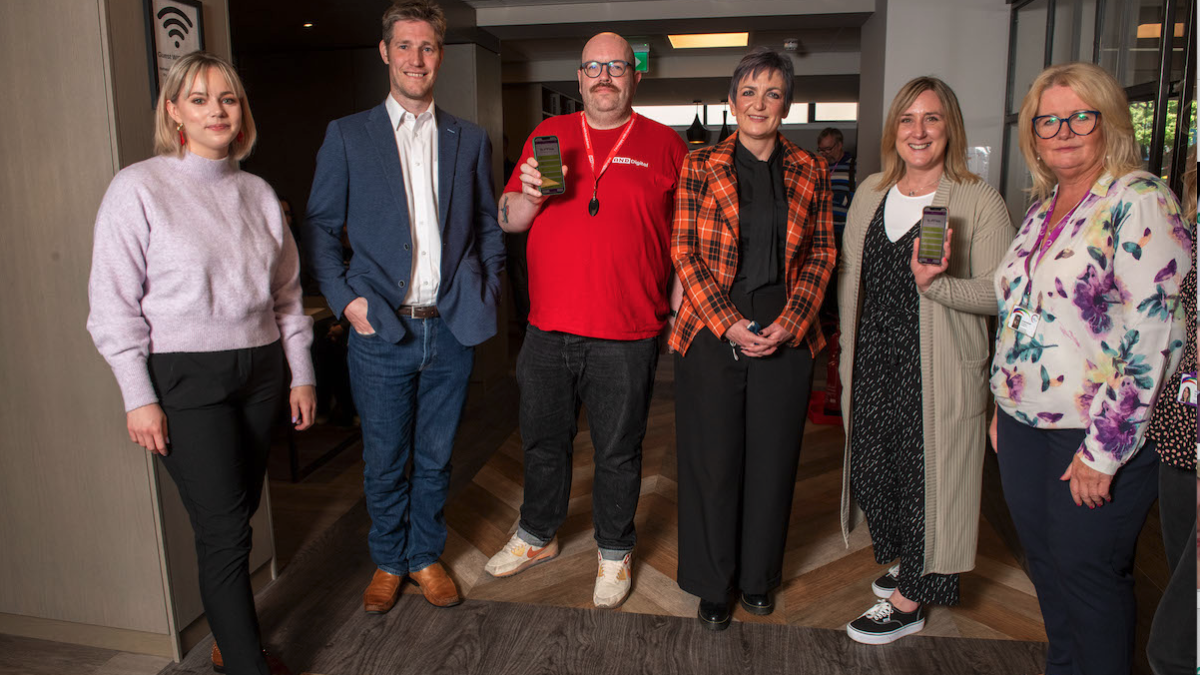Our mission at AND Digital is to close the digital skills gap. I think when we hear “digital skills” many focus on technical proficiencies: hardware and software expertise, coding knowledge, IT problem-solving. Instead, as I find frequently in my role as People Lead at AND Digital’s Club Almeida, it is key behaviours that drive digital success, innate human qualities that can be cultivated to complement technological tools deliver results.
A key reason that I wanted to work at AND Digital, and why I’m so passionate about what we do, is that corporate social responsibility in our organisation is not “window-dressing”, it is not a strategic marketing initiative, it is an integral part of our working lives. Delivering meaningful digital solutions to issues affecting the communities in which our clubs reside is a founding pillar of our company ethos.
I seek out opportunities that help our team practise communicating with empathy, experiences that develop ourselves, and in turn help others develop. By flexing these empathetic muscles, we strengthen our team’s culture and lay the groundwork for the organisational traits that are vital to digital transformation, like psychological safety and diversity of thought. Our collaboration with Simon Community Scotland has been just such an opportunity.
Simon Community Scotland (SCS) is the largest provider of homelessness services across the country. We began our work with SCS by identifying what skills support we could provide, if there was any particular training that SCS required. I think our approach to projects, leading with listening and understanding needs, enabled us to understand there was a deeper opportunity here calling for a more thorough response.
As we learned more from the experts at SGS, the project gained momentum and new objectives. Claire Longmuir, head of harm reduction at SGS, revealed that “there has been a disproportionate increase in drug-related deaths amongst women, especially those aged over 35 years old. In 2009, women accounted for around a quarter of drug-related deaths, they now account for 31 per cent.”
Learning that the total drug-related deaths among women had seen a nearly 300 per cent rise, we identified that an app with a gendered design approach would serve a key part of the community, by providing a digital safe space for women at risk. When we began the By My Side app, we initially focused on providing advice to prevent drug-related harm for women, but by working directly with those women, we were able to develop it to host wider resources. The app is now home to reliable, high-quality resources on mental health, support for those affected by domestic or sexual violence, and information for managing sexual health.
Throughout the co-production process, we spoke with future users of the app as well as SCS’ experts. We uncovered insights which informed key app features: the ‘Get Out Now’ button instantly closes the program, and a ‘Check on Me’ function sends a text message to an identified person when in need of support.
The results were eye-opening. I was thrilled that the team was able to see, in real-time, the positive impact that the By My Side app can create. By leveraging the same skills we bring to our business clients, communicating with empathy, identifying needs, we crafted a digital tool that can change and even save lives. The entire process of our collaborative efforts with SCS has been incredibly rewarding. I have no doubt that the experience has made us more effective as individuals and stronger as a team.




